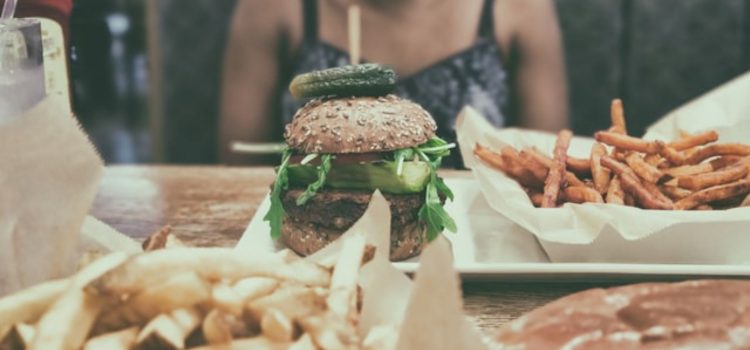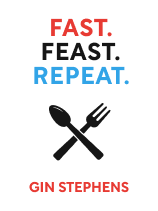

This article is an excerpt from the Shortform book guide to "Fast. Feast. Repeat." by Gin Stephens. Shortform has the world's best summaries and analyses of books you should be reading.
Like this article? Sign up for a free trial here .
Do you experience extreme hunger pangs when fasting? How long does it take for hunger to dissipate?
It’s normal to experience constant hunger during fasting, especially in the beginning stages. As your body gets used to going without food for extended periods, you’ll begin to tune back in with your natural appetite signals. However, getting there will take time—in most people, these signals have been messed up by constant feeding. While your body is adjusting, learning to eat intuitively will help keep hunger at bay.
Here are some tips on how to control hunger during fasting.
Learn to Eat Intuitively
Most people eat more than they need because they are out of tune with their natural appetite signaling. Ghrelin signals when we’re hungry, and leptin signals when we’re satisfied. As infants, we can easily sense these signals and know when we’re hungry or full. But we lose touch with them as we age, making it easy to overeat and gain weight. According to Stephens, intermittent fasting helps you tune back into your appetite signals. When you’ve tuned back in, you can use those natural signals to eat what feels best to you and to “stop when satisfied.”
(Shortform note: The notion of “intuitive eating” originates from a 1982 book called Diets Don’t Work by Bob Schwartz. He advocated, simply, to eat only when you’re hungry, to eat slowly, and to stop eating when you’re full. The idea was popularized in 1995 in Intuitive Eating by Evelyn Trible and Elyse Resch, who detailed how to overcome the “dieter’s dilemma”—the conflicting desires to be thin and to binge on treats—by rejecting the “diet mentality.” Given the similarity of these terms to Stephens’s (“diet brain”), it’s likely she lifted her ideas from this earlier work.)
When tuning back in, it takes time for your appetite signals to reset. To help get you there, Stephens offers the following tips on how to control hunger during fasting:
- Tactic #1: Eat less than you normally would—You can do this by remembering “hara hachi bu,” an Okinawan practice that means “eat until 80% full.”
- Tactic #2: Be mindful of your experience—If you notice a “sigh” of contentment, that’s one signal to stop eating. If you notice that the food has lost its initial deliciousness, that’s another signal.
(Shortform note: In Intuitive Eating, Tribole and Resch argue that one key to healing your relationship with food is to focus on the process. In this view, weight loss isn’t the goal so much as a side-effect of your commitment to eating well. As you learn to listen to your body and eat when you’re truly hungry—and to eat what your body truly wants and needs—you’ll naturally trend toward a healthy weight for your body.)
| Fasting May Heal Insulin Resistance In The Obesity Code, Jason Fung argues that periods of extended fasting (24 to 36 hours) are the key to healing insulin resistance and beating obesity. As he explains, our modern eating habits of three meals a day, plus regular snacking, never allow insulin to drop much. These chronically high insulin levels lead to insulin resistance. Fasting heals insulin resistance because it’s the most reliable way to lower insulin levels. The longer you fast, the more insulin levels decrease. Insulin levels must be both high and persistent to produce insulin resistance, so if you regularly fast, you prevent persistently high insulin. Over time, you’ll increase your insulin sensitivity, and that enables your body to make do with less insulin—which slows down fat storage and helps with fat loss. |

———End of Preview———
Like what you just read? Read the rest of the world's best book summary and analysis of Gin Stephens's "Fast. Feast. Repeat." at Shortform .
Here's what you'll find in our full Fast. Feast. Repeat. summary :
- How intermittent fasting can help you lose weight, feel better, fight disease, and live longer
- An explanation of the cutting-edge science that supports fasting
- How to follow a four-week quickstart program to adapt to this new lifestyle






